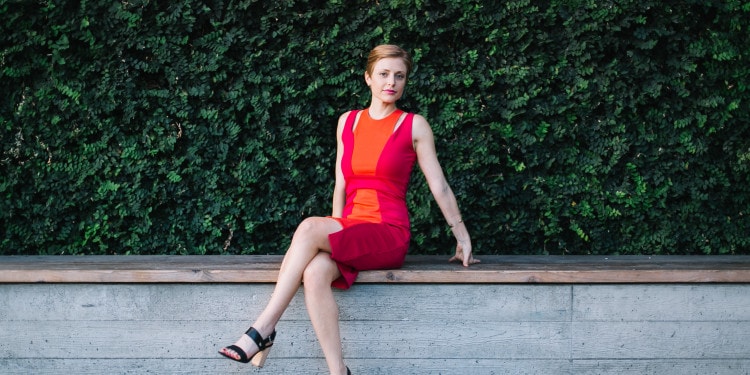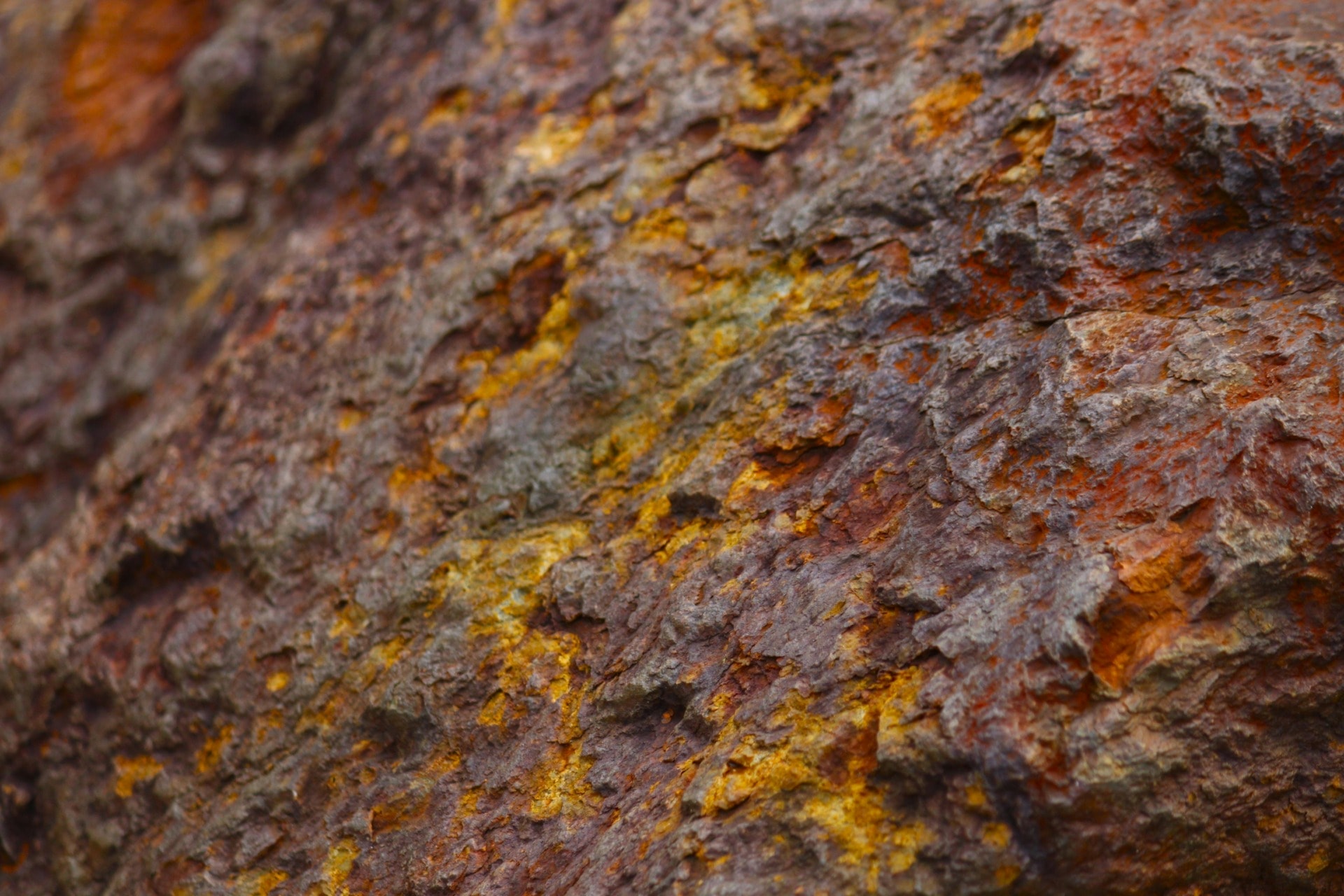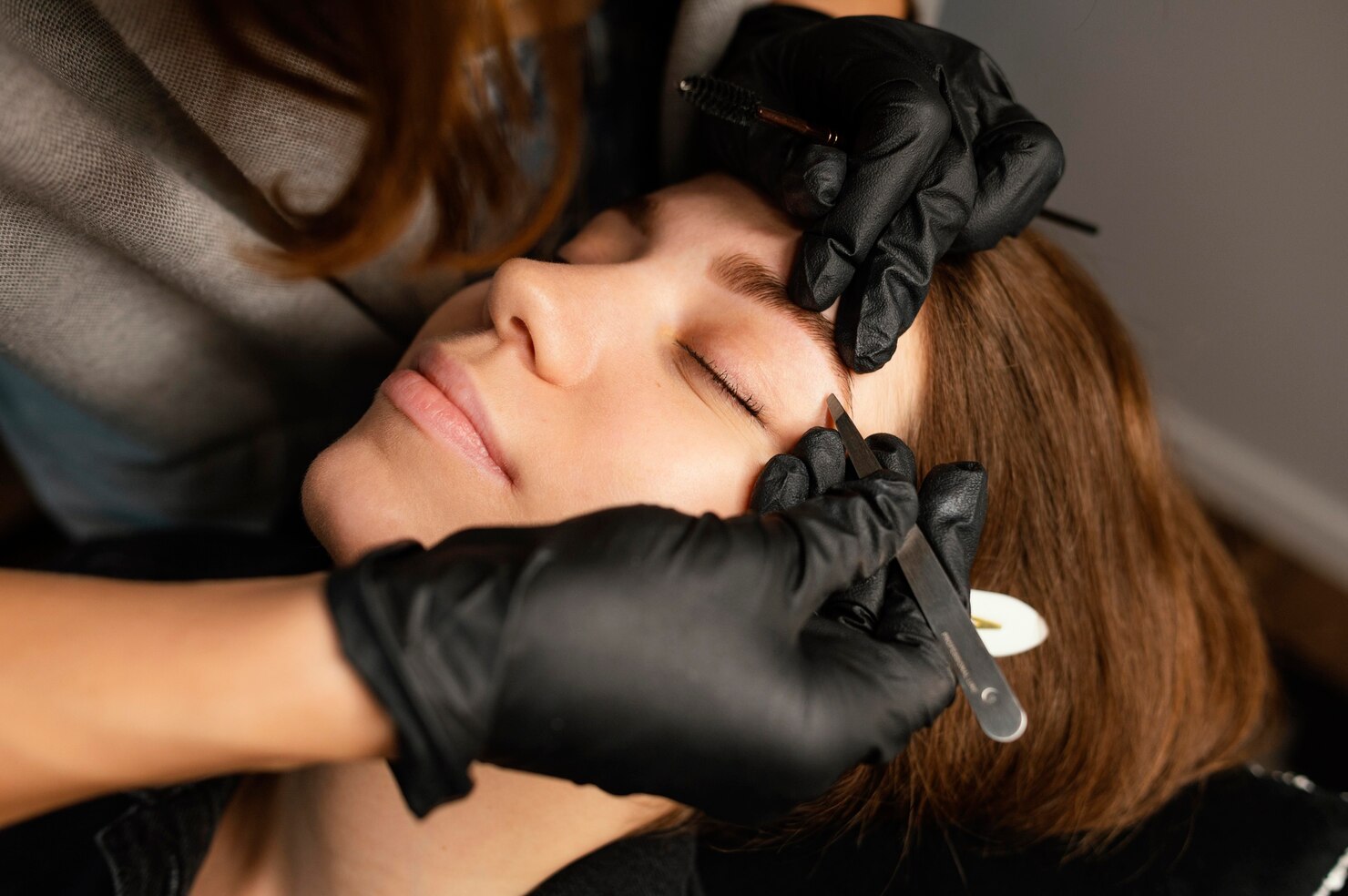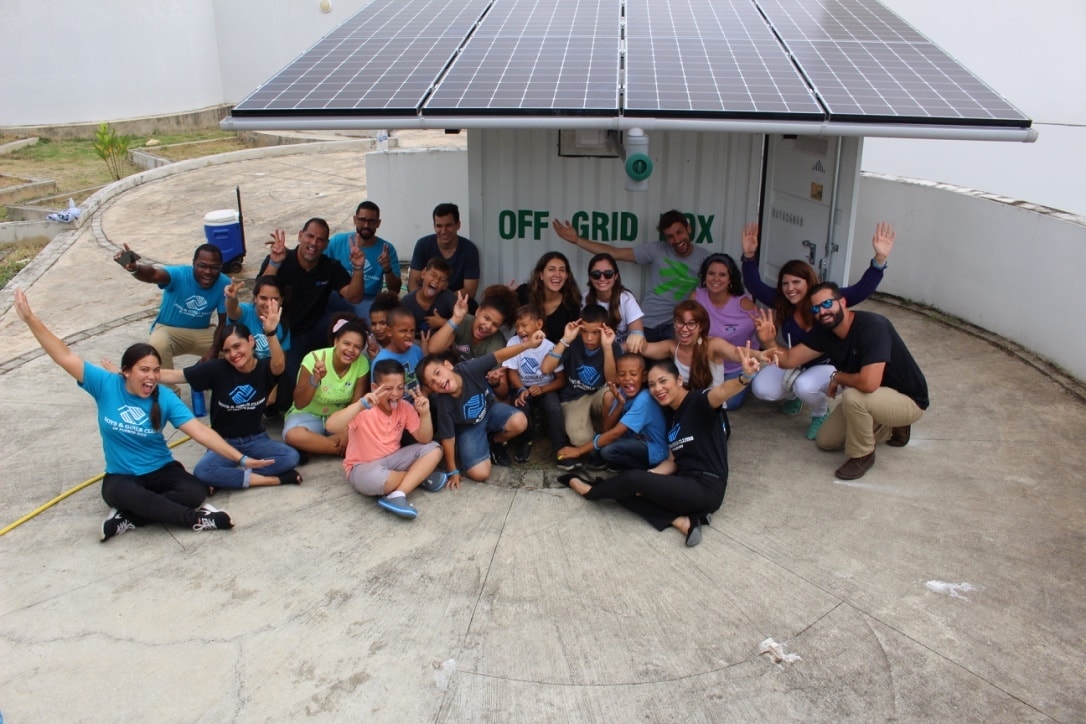Kasi Martin is the founder of The Peahen, a site that brings truth-telling and intellect back to fashion. After burning out in the luxury fashion industry, she made it her mission to make ethical and sustainable fashion more approachable for the mainstream consumer. She writes and speaks about the topic extensively and is a fierce advocate for transparent brands that are reshaping the industry. Kasi also models for ethical brands and helped to co-host the first Fashion Revolution Week in her hometown, Austin, Texas. She has an active following on Instagram, where she talks about the latest ethical brands, shares her personal fashion pics and initiates honest conversations with her supporters.
Can you tell us a little bit about yourself? Where you grew up, your education, main interests and jobs you’ve held?
Kasi Martin: I grew up in a small town in central Florida, near Tampa. When I was younger, I wasn’t exposed to a lot of travel, culture or cosmopolitan ideas, so I always had this insatiable desire for them. It’s what drew me to expressive fields like fashion and expansive, global ideas like social change and activism.
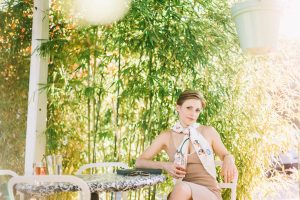
IN THE PHOTO: Kasi Martin. PHOTO CREDIT: Kasi Martin
I ended up at a large public institution (University of Florida) for school because of my state’s generous scholarship program. When I moved away from home for the first time, I wanted to follow my intuition and jump into one of these creative fields but because the career path wasn’t as clear as fields like government or medicine, I couldn’t figure out what exactly to focus on.
Recognizing that I was passionate but indecisive, I decided to pursue something practical that would give me some time to figure things out. I did a general degree in communications and media because it allowed me to write and talk, two things I realized I was already adept at, I just needed some refinement. Luckily, at the time, UF had just launched a program that focused on social change, which I jumped into. I started studying global campaigns that were focused on alleviating issues in the public health, human rights and environmental sectors. The program was also taught really unconventionally, which I loved. The professionals who were building an entirely new field of communications (they called it “public interest”) at foundations, nonprofits and agencies were teaching the classes. They treated us like colleagues instead of students and brainstormed campaign ideas with us. It was very hands-on, learn-by-doing, a style of learning that really resonated with me.
In the midst of this program, I was also super engaged in fashion. I was running media for some local events, working weekends at a boutique where I was buying and styling and just spending time devouring fashion magazines, watching runway shows and honing my personal style. I guess you can say I was “fashion self-educated,” although I did get a dose of formal fashion education when I studied abroad. I did a program in Milan for fashion journalism and merchandising that was eye-opening to the luxury side of things.
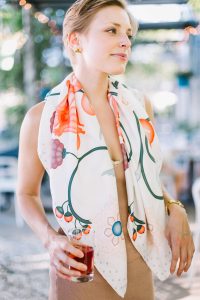
IN THE PHOTO: Kasi Martin. PHOTO CREDIT: Kasi Martin
After I graduated, it came down to picking between these two fields – social change and fashion – and I went with the latter. I moved to Manhattan to work for a luxury PR-firm which ended up feeling so against everything I stood for. Sending samples all day and being told that my career depended on rubbing shoulders with a certain ‘scene’ at night didn’t jive.
So, from an “I need to pay my bills standpoint” I fell into financial marketing and it’s sustained me for the past six years. I’ve told myself along the way that I’d do it until I could figure out how to carve my own positive path in fashion or social change.
When it came to starting The Peahen, there’s wasn’t really an ‘a-ha’ moment that inspired me. I just wanted an outlet for my unfulfilled interest in fashion. That, and I wanted to see if I could get back into the industry on my own terms. So at first, I was kind of just throwing content out there to see if it would stick. I wrote trend guides and covered fashion week but it wasn’t until I started getting into ethical and sustainable fashion that it really took off. I think it’s because my passion for it came through much more and I my readers sensed that. I gradually began to realize, this is it, this is how I fuse my two divergent passions into work that is 100 percent me.
When did you first discover your love of fashion?
K.M.: Oh boy…I think this started because I was bashful and reserved when I was younger, which you’d never know if you met me now. I’m like, give me a mic and let me at an audience! But then, and still to some extent today, visuals were an easier way to send a message to the world about who I was without having to overextend myself.
Even though I’ve gotten good at talking, it’s still not my preferred mode of communication. There’s such a strong expectation of clarity and directness that it leaves me wanting more. More emotion, more character, more subtlety. I think nonverbal cues, like dressing, can capture these nuances better in some cases because they don’t force the messenger to boil their message down to the basics. They’re an unsynthesized soul, which I find really beautiful.
So my love of fashion was a little of this need for self-expression and deeper communication, but also, if I’m being totally honest, a yearning for a more artful, interesting life.
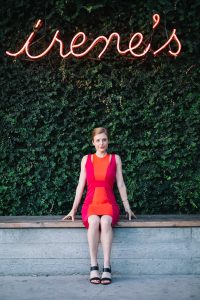
IN THE PHOTO: Kasi Martin. PHOTO CREDIT: Kasi Martin
I connect with clothes on a deeper level because they fuse the freedom that’s born from artistic expression but temper it with consumer desire. That balance I’ve always found so fascinating. Other forms of art can skew too far in opposing directions for me, either being too “out there” or too basic and decorative. There’s nothing else like fashion.
Why in particular did you start documenting about sustainable and ethical fashion, and what are the main messages you wish to convey through The Peahen?
K.M.: Well, it started more as a fusion of my passions, this inherent drive I had to create positive social change while, at the same time, working in fashion. So, at first, it was more of a personal endeavour. But as I got embedded in the industry and started learning how devastating the human and environmental impact is, it became a pursuit outside of myself.
To paint the picture quickly: fashion is the 5th most polluting industry in the world, employs approximately ⅙ of the world’s population, the majority of which are women, and major brands routinely get away with gross human rights and labour violations, even after sweatshop labour reform in the 90s.
This was sickening to me, but at the same time, I still wanted to enjoy fashion and I wanted this for others too, just without the negative consequences.
The deeper I researched, the more complicated the issues seemed. Since globalization has taken hold, we’re ingrained in systems that have commodified our lives and it’s hard to break that status quo. Within this, I saw a gap where consumers were ignoring facts because they were just too daunting and I’ve tried to fill it in two ways. First, through fact-driven writing that simplifies the message and second, by featuring ethical and sustainable brands in a way that showcases their design and aesthetics rather than their “values.”
I focus on design because I think consumers have preconceived notions about “eco” or “ethical” fashion that’s it’s not stylish so I don’t think it’s an effective way to market clothing anymore. I absolutely do my homework on the brands I feature to ensure they’re adhering to standards of transparency and sustainability but, ultimately, when I push the message out I lead with the look because we’re inherently visual creatures.
What I want to say about ethical fashion with The Peahen is more understated. It’s not “can you believe this is sustainable and made by an artisan” but, rather, “hey, this is simply just beautiful and you can breathe a little easier knowing it didn’t inflict harm on the earth or the people who touched it along the process.” I call it ethical fashion for the mainstream consumer.
Can you explain the roles you play in Fashion Revolution Day ATX and Ethical Writers & Creatives, and how you are trying to bring change to the fashion industry?
K.M.: With my role in co-hosting Fashion Revolution ATX, that story goes like this: I learned about Fashion Revolution Week, the larger global movement, when I started The Peahen and I saw it as the perfect example of an campaign that not only understood how to organize digitally but was fighting corruption in the industry through tangible action.
Fashion Revolution epitomizes my favorite MLK quote, “Those who love peace must learn to organize as effectively as those who love war.” Plus, it was also growing in a really healthy and methodical way after it started in 2013 after the Rana Plaza garment factory collapse. I thought, now that’s how you make change.
So when I moved to Austin – a really innovative city with lots of emerging indie and, by nature, ethical, designers – I knew there’d be an appetite and need to create a movement here. So I partnered with two of my friends to bring it to life. Last year, we focused on introducing the idea of “ethical dressing” by encouraging Austinites to explore the local offerings here and by hosting small, informative roundtables at our main event centered on asking the question, “who made my clothes?” For 2018, we’re talking about how to take this idea deeper and build on our momentum. We’ll probably focus more on this year’s global theme “Loved Clothes Last” with strategies that help Austinites mend and care for their clothes and adopt habits that generate less waste.
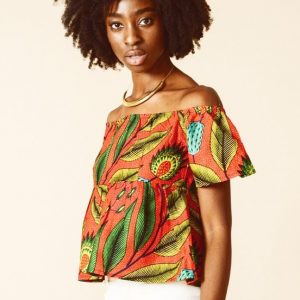
Photo Credit: Instagram (@kasimartin)
Something else I’m really pumped about is my new role as Regional Coordinator for the Southwest. It’s an opportunity to sync up with other cities, collaborate with the global movement and really up the profile of our region’s role in fashion at the national level. There so much amazing heritage textile making and indie talent here that really goes unnoticed compared to the east and west coast meccas of fashion.
On the other side of things, my role in the EWC is more about having a sense of place in the industry. I get to collaborate with and learn from other writers, photographers, publishers, and artists who are paving their own way in the field of ethics and sustainability. And they’re not all in fashion, so I learn a lot about fields like wildlife, food, politics and human rights from exploring their work. It’s so vital to what I do as a sole proprietor, being able to jump into a Slack channel and ask questions or help others troubleshoot and provide support.
It’s really my role there that took me from dabbling in ethical fashion to running a site fully dedicated to it. I became a member about two years ago and the group has evolved and expanded so much (in a good way). Much of that is thanks to the savvy founder and journalist, Alden Wicker (EcoCult). I just took over as head of membership earlier this year and something I’m really focused on is maintaining an open and inclusive space and ensuring members get the same personal connection that I did when the EWC was much smaller. I’m mulling over all kinds of ideas to foster member engagement. It’s fun, this business of organizing and aligning people.
Because I’m so embedded in this field, it’s easy to start thinking, “oh, people are really bought into ethical fashion” but when I step back and look at the data, extremely high-end or low-end (fast) fashion still reigns supreme. It follows global economic trends. So while I’m in both of these groups for two very different reasons, the motive is the same: to align myself with like-minded activists with diverse skills so we can spread ethical fashion to a wider audience.
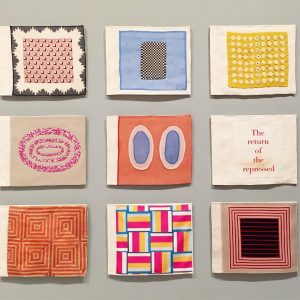
Photo Credit: Instagram (@kasimartin)
As well as sustainable fashion, you are also keen on raising awareness of sustainability across other facets of life. What are some of these topics and why is it important to have a holistic approach towards these issues?
K.M.: Sustainability is in everything. Food, transit, city planning, even in how we communicate (think about all the submarine cables underwater that fuel our internet and data use!). But what I think is really important to think about holistically is how we create systemic change by reforming government and business.
I studied this extensively in my social change classes, and I think one example that illustrates this is the messaging around climate change. It got so derailed because too much onus was put on the consumer. “Turn off the water when you brush.” “Buy vegetables grown within 15 miles of your home.” “Carpool at the expense of your sanity.” You know the messages. And I laugh because I totally bought into them and still do in many ways. I even joined a farm co-op when I moved to Austin and had way too many vegetables for one human.
There’s nothing wrong with these individual conservation pursuits, they’re quite admirable actually. But the issue is that we eventually get tired of them and, even worse, they don’t make a significant enough impact to warrant a lifestyle change. If we’re talking about a holistic approach to make systemic change it has to flow in both ways, top-down from massive government reform and bottom-up from consumer demand, with much more emphasis placed on the former.
Moving forward, how do you plan to further promote transparency throughout business models and eradicate common problems still lingering? (ie: do you have plans to write books or create your own businesses?)
K.M.: I think owning The Peahen has taught me what it takes to run my own business and freelance and I’m not sold on the idea that it’s fully sustainable yet. I recognize that the world is still very much run by fast-fashion. My field is gaining momentum, but it’s not far enough along yet to be lucrative, at least in writing and advocacy. It’d probably be different if I was designing but that’s not where my skill set is. So I feel really fortunate to have a full-time gig that allows me to do this on the side until I can figure out the missing piece to make it my career.
Ultimately, my goal is to work for a global, sustainable brand or industry organization, be it in a marketing, writing or spokesperson capacity. I hope when that time comes that my work on The Peahen will serve as a testament to my skills and ability to pave my own way in a nascent industry.
For now, I’m glad I’ve found something where I actually enjoy the process of working and feel that I’m making an impact.


